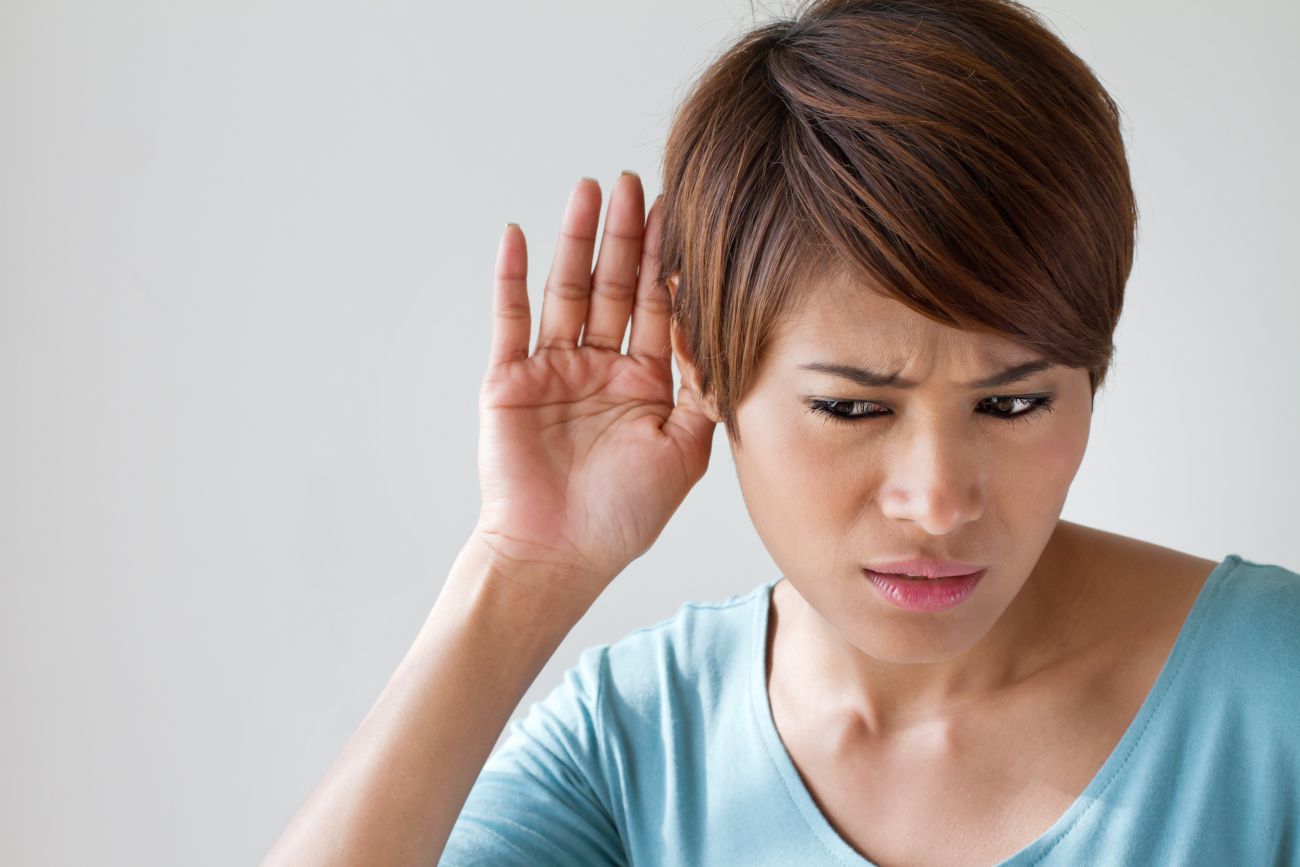Hearing loss can affect people of all ages and backgrounds, and it can take a big toll on your quality of life. About 15 percent of adults report having trouble hearing, and almost 10 percent of adults could benefit from hearing aids.
Hearing loss often begins as a minor problem and gradually gets worse, so you may not notice that you have it. To recognize hearing loss in yourself or a loved one, you should be aware of the signs and symptoms.
Here are seven of the most common symptoms of hearing loss.
1. Constantly Asking for Words to Be Repeated
You don’t have to struggle to hear all sounds to be suffering from hearing loss. With some types of hearing loss, difficulty understanding words is the only symptom. You may find yourself asking others to repeat themselves more frequently than usual, and you may need them to repeat their words more than once to understand.
This is especially common with people who have a sloping hearing loss, which means they can hear low-pitched sounds but struggle with high-pitched sounds. Vowel sounds are low in pitch, and consonant sounds are high in pitch. Therefore, you may feel like you can hear speech normally, but it may be difficult to actually understand the words.
2. Social Situations Becoming Tiring
If you have hearing loss, you may start to feel completely drained after social situations. Straining to understand and respond to speech when you have hearing loss can be mentally, emotionally, and even physically tiring. This is known as hearing loss exhaustion or hearing loss fatigue. You may feel especially tired after being in noisy areas as it’s usually more difficult to understand sounds when there’s lots of background noise.
Hearing loss exhaustion is also linked to stress and anxiety. You may start to feel anxious about how your hearing loss affects your work performance or your relationships with friends and family, which can lead to mental and physical tiredness.
3. Words Stop Being Enunciated
Some people do mumble or speak too quietly. However, if you feel like everyone around you mumbles or doesn’t enunciate their words, it might be a sign of hearing loss. This problem is particularly common for people with hearing loss when they talk on the phone or can’t see their conversational partner’s face. When you can’t see someone’s mouth moving, it’s even harder to understand their words.
4. Tinnitus Muffles Other Noises
Tinnitus is a ringing, buzzing, or roaring sound in the ear that can affect your ability to hear. Some people only experience tinnitus occasionally, but others have a constant ringing in their ears. The sound may be low-pitched or high-pitched, and it can affect one or both ears.
Tinnitus is a sign that something in your auditory system has been damaged, and it’s often the first symptom of hearing loss. The inner ears contain sensory hair cells that transmit sound waves to the brain, and tinnitus occurs when these hairs are damaged. This can happen after being exposed to loud noises for a long period of time.
5. Can’t Understand Children’s Voices
The inability to understand children’s voices is a sign of high-frequency hearing loss. If you have this type of hearing loss, you may be able to hear deeper voices clearly, but the high-pitched voices of children can be much more difficult to understand. The higher the frequency, the less you’re able to hear.
High-frequency hearing loss is the most common type of hearing loss. It can be caused by genetics, aging, exposure to loud noises, or drug side effects. Sloping hearing loss, which makes it difficult to understand words, is a type of high-frequency hearing loss.
6. Volume Controls Climb Upwards
One of the most common signs of hearing loss is the need to keep turning the volume up on your TV, phone, or radio. Other people in your household may complain that you keep the TV too loud, or you may think that they keep the volume too low. Every few weeks or months, you may have to turn the volume up another notch to listen comfortably, and the volume you used to feel comfortable at a year ago may seem too quiet now.
7. Sounds Become Flat
In addition to making everything seem quieter, hearing loss can make noises sound flat, muted, or distorted. Flat loss is a type of hearing loss that makes all sounds of all frequencies quieter. This is a type of conductive hearing loss, which occurs when a structural problem in your ear prevents the sound from traveling properly.
If the pitch of the sound seems distorted, you may have sensorineural hearing loss, which is caused by nerve damage. One type of sensorineural hearing loss is diplacusis, a disorder that makes you hear one sound as two different pitches in each ear. This can make noises sound flat or warped.
When it goes untreated, hearing loss can make your life extremely difficult. If you have any of these symptoms, you should speak to your doctor and undergo a hearing exam. There are a variety of different treatments for hearing loss, but the first step in correcting the problem is recognizing the signs.
